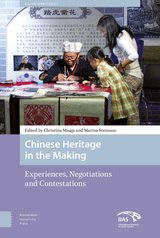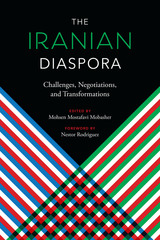

By incorporating negotiation records, such as the 1958 Declaration on China’s Territorial Sea, the 1992 ASEAN Declaration, and the 2005 Tripartite Agreement, Jiye Kim traces how China reshapes its interests into negotiation agendas, providing critical insights into the nation’s diplomacy and making a significant contribution to an existing literature on the South China Sea that has been largely dominated by analyses of great power rivalry. This book sheds light on China’s underlying interests as living and adaptable entities, providing scholars with a detailed, evidence-based understanding of the complexities that define one of the world’s most contested maritime regions.

The Iranian revolution of 1978–1979 uprooted and globally dispersed an enormous number of Iranians from all walks of life. Bitter political relations between Iran and the West have since caused those immigrants to be stigmatized, marginalized, and politicized, which, in turn, has discredited and distorted Iranian migrants’ social identity; subjected them to various subtle and overt forms of prejudice, discrimination, and social injustice; and pushed them to the edges of their host societies. The Iranian Diaspora presents the first global overview of Iranian migrants’ experiences since the revolution, highlighting the similarities and differences in their experiences of adjustment and integration in North America, Europe, Australia, and the Middle East.
Written by leading scholars of the Iranian diaspora, the original essays in this volume seek to understand and describe how Iranians in diaspora (re)define and maintain their ethno-national identity and (re)construct and preserve Iranian culture. They also explore the integration challenges the Iranian immigrants experience in a very negative context of reception. Combining theory and case studies, as well as a variety of methodological strategies and disciplinary perspectives, the essays offer needed insights into some of the most urgent and consequential issues and problem areas of immigration studies, including national, ethnic, and racial identity construction; dual citizenship and dual nationality maintenance; familial and religious transformation; politics of citizenship; integration; ethnic and cultural maintenance in diaspora; and the link between politics and the integration of immigrants, particularly Muslim immigrants.

The Burakumin. Stigmatized throughout Japanese history as an outcaste group, their identity is still “risky,” their social presence mostly silent, and their experience marginalized in public discourse. They are contemporary Japan’s largest minority group—between 1.5 and 3 million people. How do young people today learn about being burakumin? How do they struggle with silence and search for an authentic voice for their complex experience?
Voice, Silence, and Self examines how the mechanisms of silence surrounding burakumin issues are reproduced and challenged in Japanese society. It explores the ways in which schools and social relationships shape people’s identity as burakumin within a “protective cocoon” where risk is minimized. Based on extensive ethnographic research and interviews, this longitudinal work explores the experience of burakumin youth from two different communities and with different social movement organizations.
Christopher Bondy explores how individuals navigate their social world, demonstrating the ways in which people make conscious decisions about the disclosure of a stigmatized identity. This compelling study is relevant to scholars and students of Japan studies and beyond. It provides crucial examples for all those interested in issues of identity, social movements, stigma, and education in a comparative setting.
READERS
Browse our collection.
PUBLISHERS
See BiblioVault's publisher services.
STUDENT SERVICES
Files for college accessibility offices.
UChicago Accessibility Resources
home | accessibility | search | about | contact us
BiblioVault ® 2001 - 2025
The University of Chicago Press









